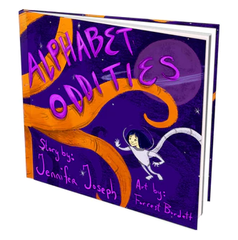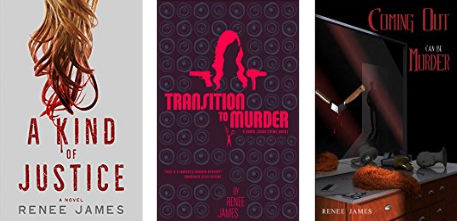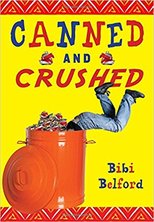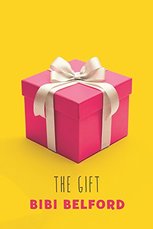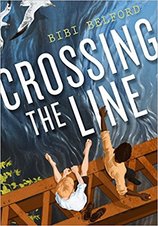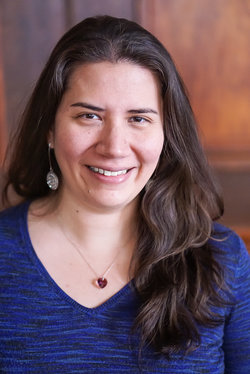|
Welcome to week eighteen of the #WritersQuick5 series - where we learn about writing from fellow writers.
I think it is so important to remember that writers aren’t just people who get books published. Corporate Communications is an incredibly vital and vibrant role in the workforce. Today I’m honored to feature my friend, Erin Slucter, who currently serves as a Senior Manager of Communications and Multimedia at an organization here in Chicago. Her answers here are personal, but her professional work bespeaks the ways in which we all tell stories. Erin tells corporate stories. As both a communications and multimedia person, about 60% of her storytelling is through video. The other 39.9% is pretty standard communications-type work—speeches, annual reports, letters, etc. And, as tells me, “there is .1% of my time spent thinking about the time I will spend working on the totally interesting creative non-fiction book I will write in the future.” Let’s see what Erin has to say… Question #1 - Where do you write and why do you write there? Everywhere and all over the place. I'm a total scatterbrain when it comes to my projects. They usually consist of a little research, interviews, writing an outline or script, and then pulling together the story. So, that could mean the story is coming together in several different places. I do, however, get loads of clever* ideas that I jot down on my daily commute. *They are absolutely brilliantly clever to me in the moment but since they often go unexplored, my guess is that gush of what I perceived as cleverness was probably blue line/blue line patron fumes. Question #2 - What is unique about writing for your particular genre? Since most of the storytelling I do is for the organizations I work for, there is often a pre-set agenda. That's not necessarily a bad thing but if I'm telling a story about chicken rearing in Alabama, I'm not there to uncover a big news story. I'm there to show people what chicken rearing in Alabama looks like. Or, if I'm writing a speech for a president, the subject of the speech is almost always tied back to my organization's mission. Question #3 - What are some of your grammar or punctuation pet peeves? I love the Oxford Comma and feel a bit naked and exposed when it's not used. Question #4 - At what point in your writing process do you start to bring other people in to review your work? I've been trying to bring people into the process earlier, at an outline stage. I've found that it cuts down on the 70 million edits that come from all over the place—from the CEO to the IT Coordinator—later. Question #5 - What advice would you give to a new writer about the writing process? Don't get anxious if you're a person that both starts and finishes a project at the eleventh hour. My best work happens then. (Note to self, don't get anxious when I both start and finish my next project at the eleventh hour.) Thank you Erin for sharing this week. I know you, so I can hear your voice in these answers, which means I’m laughing at my desk as I post them because you are as hilarious as you are wise! And I agree, know yourself well enough to know when you work best - it may just be in the 11th hour! Thank you for representing those of us who write for a living - even if that doesn’t mean we don’t currently have a book to plug. *** If you would like to be featured as a writer in the #WritersQuick5 series, please just reach out and let me know. I’d love to promote your work as well! For updates on #WritersQuick5 and other info from me, please follow me on Twitter or check back with this blog for all the latest.
0 Comments
Welcome to week seventeen of the #WritersQuick5 series - where we learn about writing from fellow writers. Today I’m honored to bring you answers from novelist, poet and screenwriter Jennifer Joseph. Jennifer writes fantasy, science fiction and poetry for readers of all ages, and horror for those old enough to know that monsters rarely live under your bed. Jennifer currently has a Kickstarter up for her first children’s poetry book, Alphabet Oddities, which runs until May 5, 2017. Her project was even named a “Project We Love” by the team at Kickstarter. Alphabet Oddities features an Asian-American girl who loves science, space and weird creatures. Personal note: I was so stoked to support this Kickstarter. Like Jennifer, I’m ½ Asian AND I write and love science fiction, so supporting this idea was 100% awesome for me. Jennifer’s poetry chapbook, Speeding in Reverse, was published as a limited edition run in 2012 and she has also been featured in a variety of magazines and journals.
Let’s see what Jennifer has to say… Question #1 - Where do you write and why do you write there? I usually write at my desk in my home office but I also like to write in coffee shops. I have a gigantic office with great light, the walls are filled with art, and the shelves are filled with my favorite nerdy collectibles. It's an inspiring place to work. Question #2 - What is unique about writing for your particular genre? I write in multiple genres and mediums so this question doesn't apply. Question #3 - What are some of your grammar or punctuation pet peeves? Everyone makes mistakes bUt PlEaSe StOp DoInG tHiS. I'm more irked by the writer who thinks they don't need their work edited. Question #4 - At what point in your writing process do you start to bring other people in to review your work? My friend Ellie usually sees my work first, sometimes in the ugly first draft phase. For anyone else, I have to edit anything I write at least twice before I share it. (PS: Find Ellie at: twitter.com/ellieannswords) Question #5 - What advice would you give to a new writer about the writing process? Read a ton, remember your first draft is not meant to be perfect, never stop learning, and find a good editor. Thank you Jennifer so much for your answers! I also thinking finding a good and trusted editor is KEY. Please be sure to check out Jennifer’s Kickstarter for Alphabet Oddities and follow her on Twitter and Instagram! *** If you would like to be featured as a writer in the #WritersQuick5 series, please just reach out and let me know. I’d love to promote your work as well! For updates on #WritersQuick5 and other info from me, please follow me on Twitter or check back with this blog for all the latest. In January of 2017 I posted a personal update of how my journey to become a writer was going so far. That was week 16 after I had left a job I loved to take a stab at a new way of life. It was a relatively arbitrary week. 16 seemed like a nice round number. Plus, it was the first post of the new year and a great way to kick off 2017.
At the time, I had absolutely no way of knowing the symmetry of the situation. But as fate would have it, week 16 was a halfway point for this phase of my life. This week, week 32, I’m working furiously to set in motion / finalize / work ahead on a bunch of things because my life is about to change again. On Monday I head back to the grind of a full-time job. I’m excited, I’m nervous, I’m proud, I’m anxious: all of the normal feelings one has when starting something new. Some of you may be asking why I’m going back to work. There are so many answers to this question, money being the blunt and obvious one. But, if it was just money, I wouldn’t be doing it. Truth be told, I miss it. I miss working collaboratively on projects. I miss having that dedicated focus to working on something larger than myself. I miss being challenged by work and truthfully, I miss not having my production levels be 100% self-motivated. I have spent days, weeks imagining editorial deadlines that were all in my head. It worked, but part of me is looking forward to someone telling me, “I need this by Friday,” and having that actually meaning something. Also, a little hard to admit, but to be nakedly honest, I miss having an answer to the “where do you work?” question. I will always say I’m a writer. I will always be a writer. I have so much hope for the book I’m trying to get published. But, I can be a writer and have a different day job too. And that will feel good. I like my new answer to that question. I’ve learned that about myself. So, at 32 weeks (16 +16 folks, in case that wasn’t clear… a note more for myself than anyone reading this because I’m still wigging out at the unplanned numerology of it all) I thought it was about time to do another recap. A, “so how did I do during my time off?” recap. So, here we go.
And on a personal note:
All-in-all, this eight month “cubical sabbatical” was everything I could have hoped for. I opened myself up for some major soul-searching. I learned a lot about my personal motivations at this stage of my life. I gave myself grace for the days I wasn’t very productive and I let myself feel proud when I had major accomplishments. Of course, I am me, so I still feel like I could’ve (would’ve, should’ve) done so much more, but maybe that’s what this re-cap is for. Not to let all of you know what I’ve done, but to have it for myself for a few weeks or months or years from now. So that when I look back at this period of time, I don’t just think, “hey I took some time off, well isn’t that special?” No, instead I will look back and think, “I took some time off and DAMN I accomplished a lot.” And, I’m pleased to say I’m confident it’s not over yet. I’m still going to query and query and query my book. I’m going to attend local events and stay engaged with other writers. I’m keeping up #WritersQuick5 and Amache’s America. My hope is that my writing will remain what it always has been - a safe haven, reprieve, and blessing from the craziness of world around me. And that after this time, my return to more a traditional workplace will bring with it new perspectives, a new appreciation, and the fresh eyes of a writer. I’m sure a blog post about what it’s like to balance work and writing is forthcoming (I can tell you’re all excited for that already, lol). 32 weeks. What. A. Journey. Thanks for coming along with me. Welcome to week sixteen of the #WritersQuick5 series - where we learn about writing from fellow writers. This week brings us insights from Renee James, author of a three-book (so far) psychological thriller series, the Bobbi Logan Series. First in the series is the self-published (and then re-published) book Coming Out Can Be Murder, followed by A Kind of Justice. The third book in the series, Seven Suspects, will be released by Oceanview Publishing in October 2017. I was privileged to meet Renee at the Chicago Writers Association event, Path to Published, where she was one of the featured speakers. Let’s see what Renee has to say… Question #1 - Where do you write and why do you write there? I occupy a corner in an area at the top of stairs to our second floor. The builder of the house called it a "library", everyone who sees what I've done with it calls it a mess. I love everything about it except the morning sun in Spring and Fall--the glare forces me to pull the curtains for the most glorious part of the day. I love it because I have a nice view out a large window, and I have my favorite paintings on a wall in front of me, and it's quiet and peaceful. Question #2 - What is unique about writing for your particular genre? The mystery/thriller genre demands rising tension and sustained conflict from beginning to end. I try to add a dimension to that by getting deep into my heroine's character and how she is coping with the realities of her current life as well as the life-or-death conflict that propels the overarching plot. Each book takes up her story at a different point in her life, so she and her friends are constantly evolving. Question #3 - What are some of your grammar or punctuation pet peeves? I believe the use of the semi-colon is a sign of weak character, and the use of acronyms should be a capital offense. I don't get too snotty about other aspects of grammar, punctuation or spelling because I mostly don't know what I'm talking about. Question #4 - At what point in your writing process do you start to bring other people in to review your work? After I finish the first draft, then finish a hard edit, I try to decide if it's ready to be read. Sometimes, I have the decency to do a second draft or second hard edit before I hire an editor or heckle a trusted beta reader. The more experience I've acquired, the better my first drafts have gotten--though they aren't as much fun to write. The main thing is, at some point you have to have a professional editor--preferably someone you don't know or at least someone who's willing to tell you there's snot dripping from your nose--make a full assessment of the manuscript, after which it's easier to view my own work through someone else's eyes. Question #5 - What advice would you give to a new writer about the writing process? With regard to the writing, I think it's like sex--the first time, do what comes naturally, but after that, find out how to do it better. For writers, that's by reading, attending seminars, etc. The other thing is, start networking with other writers and writers groups immediately--it will make you a better writer, it can get you introduced to agents and editors, and you enter the best society of people you've ever hung out with. Thank you Renee! I think your advice about writing, “I think it's like sex--the first time, do what comes naturally, but after that, find out how to do it better” is perfect. I’ll never forget it and it’s absolutely true! Be sure to check out Renee’s website and find Coming Out Can Be Murder and A Kind of Justice on Amazon. You can also follow her on Twitter. Be on the lookout for the third book in her series, coming October 2017! *** If you would like to be featured as a writer in the #WritersQuick5 series, please just reach out and let me know. I’d love to promote your work as well! For updates on #WritersQuick5 and other info from me, please follow me on Twitter or check back with this blog for all the latest. There’s no way around it. Writing query letters sucks. I thought researching agents was bad enough. But actually crafting each query letter for the agent’s requirements and preferences is just brutal. Let me be clear though, it’s not the writing part necessarily (although, that is tedious). It’s the emotions behind it and the never ending self-questioning.
What if I leave out a plot point that could have totally sold the story? What if I mention too many characters (or too few)? What if I’m selling myself short? What if I sound like I’m bragging? How do I convey that I have a book worth reading? The sheer number of permutations and approaches is mind-boggling. That’s not to mention the odds of breaking through. One agent I looked at this week said they get anywhere from 80-120 queries a day. A DAY?! What could possibly make my query letter jump out from that pile? Another agent I looked at said that they are usually on an eight week backlog, so if I don’t hear back within eight to twelve weeks that means they aren’t interested. Well, who would be? If I had a backlog that big, I might not even show up to work in the morning. I know fear of missing out must drive an agent’s work, but how do they see the gold mixed in with the dog shit? Not to mention the fact that I am currently putting my lifelong dream of being a published author in the subjective hands of another person. I have to remind myself there are three big hurdles here: Number One: Write the book Thankfully, I have done that. And I’m so happy with it. It’s such a great book. I really want everyone to read it. Number Two: Get an agent So yeah, that’s in the works. Aside from sending out query letters (and yes, I did start that this week), I am also signed up for a workshop in June where I’ll get to meet an agent face-to-face and I’m contemplating another workshop in the fall. Number Three: My future agent gets my book sold to a future publisher Obviously, nothing I can do about this one right now. Some folks have told me to try and go straight to the publishers (or to try hybrid publishing) but honestly I’m not ready for that right now. So yes, if I want to be glass is half-full, I’ve jumped the first major hurdle and I’m on my way over the second. And, if I want to answer my own questions regarding my query letters, I think the only thing I can do is be as authentic as possible. Try not to be gimmicky. Try not to market. Try not to be something I’m not. Just write up what interests and hooks me about the book and have faith that it will it interest and hook other people. So yes. This is my big, bold “I’ve started sending query letters” blog post. Maybe not as triumphant as I once imagined it being, but it’s where I’m at. I’m sending query letters. And it sucks. But, ultimately, I have to have faith that it will be worth it. Welcome to week fifteen of the #WritersQuick5 series - where we learn about writing from fellow writers. This week brings us the work of Bibi Belford, a teacher who writes and a writer who teaches. Bibi is the author of young adult, middle grade, and early reader novels. Her book Canned and Crushed was published by Skypony Press, as was her e-reader book The Gift. This year, her new book Crossing the Line will be released on July 4, 2017 and Another D for DeeDee is due in September. She met her first Skypony editor at the UW Writer’s Institute.
Let’s see what Bibi has to say… Question #1 - Where do you write and why do you write there? I used to write in a beautiful gazebo with only the sounds of trees rustling and birds singing. Then we moved to the South Loop of Chicago. Now I write looking out to a sea of condos and townhouses with the sounds of kids, dogs, construction and traffic. When the weather cooperates I sit on my little balcony with my green patio umbrella and pretend I'm in my gazebo. Question #2 - What is unique about writing for your particular genre? I've taught hundreds of primary students to read and when a few of my toughest nuts to crack moved on to fourth grade, I asked them what they were reading. "We don't read because there's nothing we want to read about," was their answer. "If I write a book, will you read it?" I asked. And that's how Canned and Crushed was born. I have a picture of me reading the final draft to those boys in fifth grade. And when I presented them with the hardcover book, they did actually read it. Mission accomplished. That's what I hope for all my books. That kids who don't find other books that relate to their lives will relate to my books and read them! Question #3 - What are some of your grammar or punctuation pet peeves? When kids forget a capital letter at the beginning of a sentence and a period at the end. When they write ‘thay’ for ‘they.’ When they write an entire paragraph with one sentence. When they use twenty-five ands to write a story. Oh, wait. Were you asking about adult writers? I honestly don't notice any of those grammar or punctuation problems by comparison. Question #4 - At what point in your writing process do you start to bring other people in to review your work? I have to read my manuscript out loud. That's when I notice errors and mistakes in continuity. So my poor husband is my guinea pig. I also have a writing partner and we find it very easy to slash and burn each other's manuscripts. Sometimes things that seem crystal clear to me, leave huge questions in her mind, and I'd much rather have her notice, than wait for my editor to wonder about my sanity. A group of writers I took a class with has a reunion once a year and we share a portion of our current work-in-progress manuscripts with each other. Their feedback is crucial to me and one of the reasons I'm published is due to their gentle encouragement, okay more than that, their insistent prodding, to leave no stone unturned when creating character-driven novels with high stakes for the protagonist. Question #5 - What advice would you give to a new writer about the writing process? Just sit down and write. And finish something. Don't buy the lie that says you have to have that perfect place and moment and routine. I've written during the Super Bowl. And while you're writing give yourself a realistic timeline with an ending goal of when you plan to be ready to query and submit or attend a pitch session with agents. I wish I could have a do-over for all those times I said, "I'll start tomorrow." The start to finish process takes so much longer than you imagine it will. Most publishers can take between one and two years to publish your book, and that's after they buy your finished manuscript. So put that B in C and W. Thank you Bibi for your stories and answers! I’m so glad there are teachers like you in the world that listen to their students and take action. What an inspiration! Be sure to check out Bibi’s books and stay tune for her upcoming publications. You can contact her via her website or follow her on Twitter. *** If you would like to be featured as a writer in the #WritersQuick5 series, please just reach out and let me know. I’d love to promote your work as well! For updates on #WritersQuick5 and other info from me, please follow me on Twitter or check back with this blog for all the latest. |
AboutWriter. Archives
June 2020
Categories |
